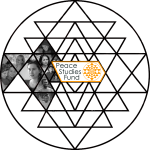In 2001, the Master of Arts Program in Peace, Development, Security and International Conflict Transformation at the University of Innsbruck started. Wolfgang Dietrich created the Master Program together with students and teachers from all over the world and was director of the Program until 2021. Since 2021, Andreas Oberprantacher is the Academic Director of the MA Program which is now called Peace and Conflict Studies and since 2023, Rina Alluri holds the UNESCO Chair for Peace Studies at the University of Innsbruck.
Encouraging Many Peaces – The Program’s Philosophy
The philosophy of the program is based on the understanding of Many Peaces, since there are as many peace(s) as there are human interpretations of it. To get to know as many interpretations of peace as possible and therefore to foster variety in the program is essential. Thus, to enable students from all over the world to join the program by decreasing systematic exclusion based on economic de-privilege is also essential. For this reason the Master’s excellent academic record is founded on the guiding principles of interculturality, interdisciplinarity and self-awareness through reflection on experiences.
As students of the MA Program, we live these principles on a practical level by immersing ourselves in an international student group of approximately 30 to 40 people each year. For eight weeks, we live together, share our rooms and meals together, and have a full schedule that requires a full-time commitment. Conflict, as a natural consequence of human beings closely living and working together while facing stressful situations, is therefore often inevitable. Through the diversity of our group we gain many valuable learning experiences as they require flexibility and openness to communicate and listen carefully to each other.
Thus, we experience the Many Peaces not only in discussions and teamwork during lectures and workshops, but also in the living room and during meal times. We do not just learn about peace, we live it.
